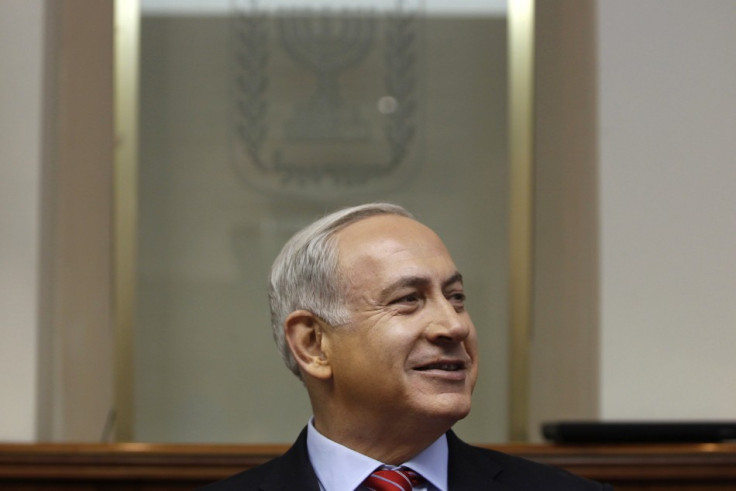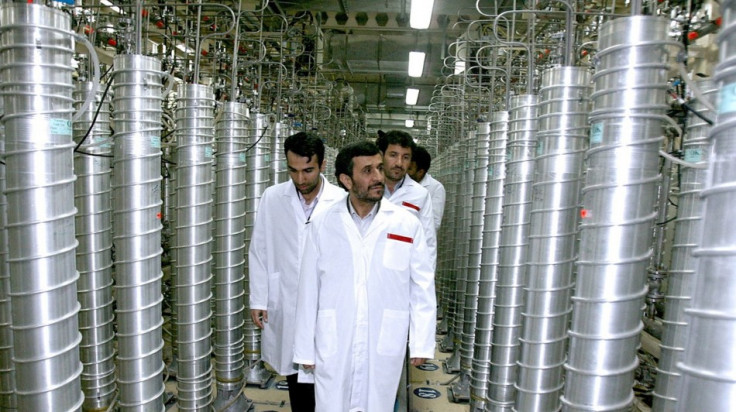Iran Nuclear Bomb Rhetoric is Easy Weapon in Hands of Netanyahu [OPINION]

A spectre is haunting Europe - and the Western world - and no, it's not communism.
To be fair, it has been hunting the West since the 1980s. Its name is Iran, or the Islamic Republic of Iran. Since the February 1979 revolution, initially cheered on by Arab militants and radicals all over the world, Israel and the United States have been keen on accepting and promoting virtually any status quo in the Arab world to ward off the danger of a Khomeini-style scenario.
Riots in Algeria following the start of the perestroika process in the USSR in 1988 forced the party in charge, the National Liberation Front, to allow a multi-party system. But the army, with Western blessing, stepped in to "suspend" elections that had been won with a landslide by the Islamic Salvation Front. A decade-long civil war claiming 100,000-200,000 Algerian lives was the result.
The fear, of course, was that an Iranian-style revolution would overtake the democratic process.
In the aftermath of the protests against an anti-Islam film, Innocence of Muslims, which depicts the Prophet Mohammed as a philanderer, fraud and child molester, Israel's prime minister Benjamin Netanyahu was quick to evoke the cold war-era spectre of the nuclear bomb. Iran was just "months away" from making one, he claimed.
Netanyahu's red-line rhetoric
Calling for fresh action to thwart Iran's nuclear ambitions, Netanyahu told NBC: "You have to place that red line before them now, before it's too late."
In a desperate attempt to strike an emotional chord with American audiences, he connected the death of US ambassador Chris Stevens in Libya with Iranian leaders' fanaticism as "the same fanaticism that you see storming your embassies today".
"They put their zealotry above their survival," he said. "They have suicide bombers all over the place. I wouldn't rely on their rationality. Since the advent of nuclear weapons, you had countries that had access to nuclear weapons that always made a careful calculation of cost and benefit. But Iran is guided by a leadership with an unbelievable fanaticism.
"You want these fanatics to have a nuclear weapon?" he said in a direct appeal to middle America. His powerful and populist style was likely to make Mitt Romney, Republican presidential hopeful, very jealous.
It is worth noting that Israel's first statement about Iran's keenness to have a nuclear weapon dates back to 1992. Israeli officials suggested Iran was just a few years from a nuclear weapon. According to various Israeli government forecasts over the years, Iran was going to have a bomb by the mid-1990s - or 1998, 1999, 2000, 2004, 2005, and finally 2010.
However, as the Washington Post reports, this time Netanyahu might be in the right track. The International Atomic Energy Agency has suggested that Iran already has more than enough uranium enriched to 20 percent that could be converted into weapons (90 percent) for at least one nuclear weapon.
The real point is: Netanyahu, Obama, and Tehran of course all know very well that any attempt by Iran to make the bomb would be detected by the IAEA and the US - with inspections, leaks or interception - allowing more than enough time to respond adequately,
"I believe that both Washington and Tehran are confident that the international community would detect an effort to use Natanz or Fordow [Iranian nuclear facilities] to enrich to weapons grade with enough time to intervene before Iran could produce a working nuclear device," Jeffrey Lewis, of Arms Control Wonk, told the Washington Post.
Iran's martyr state?

Furthermore, Netanyahu's mantra on Iran's suicide bombers is unfounded.
The claim echoed that of Alan Dershowitz, a Harvard law professor, in the Wall Street Journal in March that Iran was the "the world's first suicide nation" - but that concept was a myth, argued the highly respected Foreign Policy website.
The Iran-Iraqi war, used by Dershowitz as an example of Tehran's "willingness to sacrifice millions of their own people to an apocalyptic mission of destruction" was started by Iraq. The number of casualties for both sides over the eight years of war was about one and a half million.
Further undermining the martyr state claim is the fact that there have been no Iranian suicide bombers.
Andrew Grotto, national security analyst, wrote in the Brown Journal of World Affairs: "The martyr state view rests on bold, even radical, claims about Iran's goals and behaviour that defy conventional expectations of states' actions but no government in recorded history has wilfully pursued policies it knows will proximately cause its own destruction."
Given the fact that Iran's nuclear programme still represents a serious challenge to the Western world, Netanyahu's appeals to worst-case scenarios at a time when the US has shown its vulnerability over the Muslim protests in its oversea missions can dangerously provoke a hysterical, totally unfounded reaction from the international community.
© Copyright IBTimes 2025. All rights reserved.





















